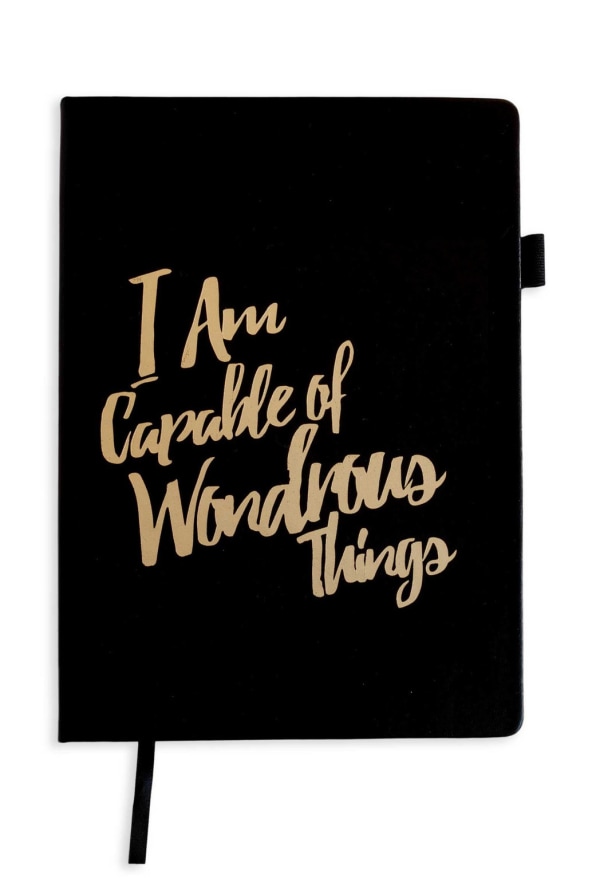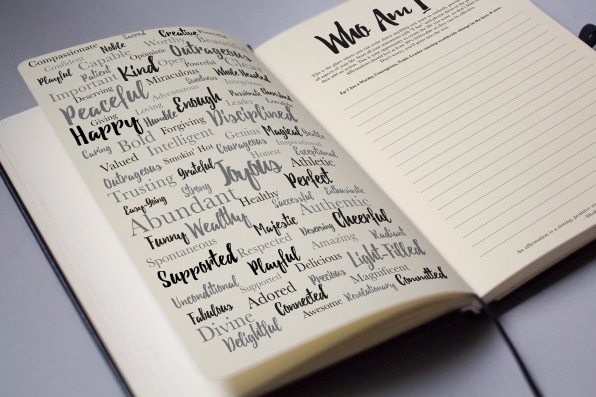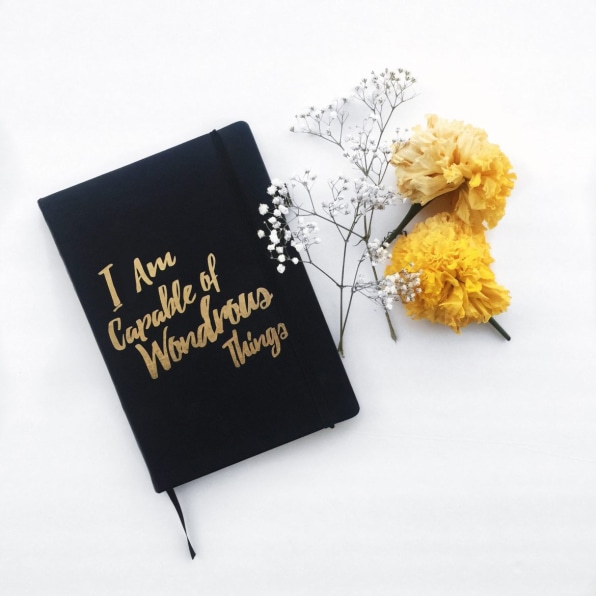7artisans 55mm F 1.4 Black E Mount Review
"When my name was called to go into the investor pitch room, I felt a wave of heat hit my face," recalls entrepreneur Cheryl Sutherland. "This was the first time I pitched my company, PleaseNotes, to people that could change the course of my business and ultimately my life."
Sweaty palms and butterflies are to be expected at such a moment, especially in a room holding around 500 other hopeful entrepreneurs jockeying to catch the eye of an investor at a "Founder Meet Funder" event in Santa Monica. Yet Sutherland still felt alone. "I noticed that the majority of people pitching their companies were the stereotypical L.A. entrepreneur: the straight, white male." Indeed, she remembers that even among the very few female founders present, she was the only African-American woman there to pitch her business.

This is often the case for black female founders. Over the last decade, there was an increase of women-owned firms totaling 3.5 million, according to the most recent State of Women-Owned Businesses Report. A large majority (78%) of these new businesses are owned by women of color. As of 2016, there were an estimated 1.9 million African-American women-owned firms employing 376,500 workers and generating $51.4 billion in revenues. Yet only 4% of female-owned businesses and 13% minority-owned businesses received venture capital funding last year. Part of the reason is that less than 3% of VC funds have black and Latinx investment partners, according to Pitchbook.
Related: The Tech Industry's Missed Opportunity: Funding Black Women Founders
Sutherland was no different. She started PleaseNotes with two products–a journal and sticky notes printed with positive affirmations–in 2016 using her personal savings and credit cards. She also launched a Kickstarter campaign. Although the crowdfunding effort successfully met Sutherland's "stretch" goal of $15,000, a year later she believed she needed an investor to get PleaseNotes to the next level. For perspective, this is less than half of the average amount raised by black female founders, according to research from Digital Undivided's Project Diane. Yet failed startups (often helmed by white men) raise over $1 million in investment, according to CB Insights.

Sutherland's odds weren't good, even though she paid her way into the event. "There were different levels" she explains, "to get one on one with an investor or go into the fast pitch round. I was in the fast pitch round." Think of it as Shark Tank, minus the TV cameras.
Plenty of founders have hair-raising tales of their efforts to secure funding. Here's what happened to Sutherland when she approached the panel of four potential funders (edited and condensed for clarity).
Confronting Immediate Bias
I had one minute with each of the people. As an entrepreneur, you have to have your pitch and your ask, and justify all that, and have your numbers be as tight as possible. I'd been practicing, I'd done two or three formal pitches, and I'd done research, and I was very clear on what it was that I wanted and what the value of my company was. The majority [of advice I'd heard] was that investors don't only care about what you are saying, they care how you're saying it. If you have the passion and clarity, then it's definitely easier.
There was one person of color, an East Indian man, and the [other three] were Caucasian, including one woman. The setting wasn't ideal. It was very disorganized [because of the size of the crowd] and there was yelling over the table. You couldn't hear so it felt limited to 45 seconds. I felt like there were boxes the investors needed to tick, like is it tech or digital? Not only did I feel like I was already at a disadvantage being product-based and focused toward women, the overall bias tends to be, if you look like an entrepreneur, you usually look like a cisgender caucasian male.
Related: This Is What It's Like To Be The Only Person Of Color At Work
They asked, "What are you doing here?" and "How long have you been doing it?" I was very clear about the things I did want and need, and next steps where I was looking for support. The person who was hardest on me was the other woman, really discounting the success that I had shipped products to multiple places all over the world just from that Kickstarter alone, which made 150% of its goal. Still, [she asked], Why do think this is special? Why are you special? What's to stop me from doing the exact same thing? I told her that everybody's got something that they are really good at. This is what I'm good at. Why I decided to do this is because I have the fire and passion for this. It is not just a drop-ship company, it has the ability to really flourish.

Immediate Outcome
At the end, the investors got to choose whether or not they wanted to follow up. One guy said he could tell there was definitely some value, because we've seen the rise self-development, self-love, and affirmation. However, where's the money behind it? He said we just need to take another look at your financials. So I paid for someone to do a whole financial model.
I went to his house in Beverly Hills to present it. I guess that is where he and this other male partner were setting up a VC firm. As a woman, you tell people where you are going. So I told [friends], if I'm not back in an hour and a half, call somebody. But overall, I think it was a good meeting. They asked lots of questions and I was able to answer all of them. They said okay, these are the next steps, and I followed up. I kept them posted on my progress. And (within 30 days) they ghosted me.
So I never got funding.
When To Get Out Of Your Own Way
I didn't try to get a small business loan because I got in my own way. My only product [at first] was a set of sticky notes, and I didn't think it was a great enough idea for a bank to fund. I undervalued what the company could be.
It is an upward battle just within my own community that there are not a lot of leaders who are saying, yes you can, and here are the tools you need to achieve. Certain cultures found the key to wealth, but we haven't had that opportunity. But this is my opportunity to do what I love and change my mind-set to have the fortitude to do the things I'm passionate about and keep moving forward.

When To Say No, Thank You
I had some investors come in and want to own a piece of the business for a very small amount of funding. One investor wanted to get 30% of the company for $10,000. He wanted me to fly to see him at my expense once a month for status checks and not bring out any new products until I ran them through him. He also wanted to own the company outright if I died. It was really a test of my own self-worth, and I said, my soul isn't worth this.
Finally A Match
I applied for and got a magnificent grant from Futurepreneur. I put in my business plan and numbers, all stuff I built while I was doing pitches. They give you a certain amount of funding, and you have to pay it back eventually. They provide you with a mentor for two years as well. The thing I value isn't money, it is mentorship. There are a lot of things I know how to do, but I would love support with financial models and someone I can bounce strategy off of, different things that can make the business stronger. This will allow me to do amazing things like showcase at the National Stationary show, so that totally worked out. I'm just excited to create more for people.

Lessons Learned
It wasn't until the pitch event that I allowed myself to target women of color in the business. In continuing to persevere, more doors continue to open. I've been endorsed by magnificent people who are huge in the personal development field like Les Brown and other influencers of color. I really want to create a space for women of color, and people of color, in general, to share information, step into power, play with creativity, build confidence, and get clear and do things they love. It's one of the reasons within my journal I include a lot of quotes are from current leaders D.J. Khalid, Drake, Serena Williams, Michelle Obama, and other successful people of color who don't get talked about as much. I'd like to create a new stereotype of success.
Advice For Other "Only Ones"
Listen to yourself. We all have our intuition as our internal GPS before we were told what we should be doing. Trust that you are headed in the right direction. If you feel like you have something more to give, it is your obligation to give it.
7artisans 55mm F 1.4 Black E Mount Review
Source: https://www.fastcompany.com/40519174/this-is-what-its-like-to-be-the-only-black-woman-founder-at-a-pitch-event
0 Response to "7artisans 55mm F 1.4 Black E Mount Review"
Post a Comment